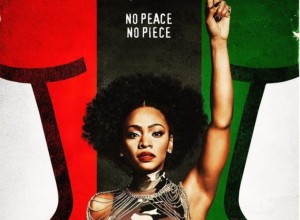First of all, I want to make it expressly clear that Chi-Raq is a fantastic film. It has an all star cast, a snappy and lyrical script, and brings a century old story up to speed in the modern day.
I hadn’t known before that Chi-Raq is a name for the poorer parts of Chicago and neither had I realized how many murders happen in that area ( I forget the exact number but I believe its the highest in all of Illinois.)
Chi-Raq is a retelling of Lysistrata, a greek comedy. In the movie, the girlfriends and lovers of two rival gangs, the Spartans and Trojans, give up sex in order to force their gangsters to give up gun violence. The phrase “No peace, No Pussy” is the most popular in the entire movie – direct and too the point.
I think that the movie, overall, did an excellent job describing the gun violence that plagues America today. But the fatal flaw of the movie ended up being that they tried to do more than what Lysistrata aimed to do. They had a sex strike against violence, but also brought in the issues of poverty, police brutality, police corruption, Black Lives Matter, and drive by killings of children.
The police brutality is brought up in only one line of the movie. The main child victim is killed by a gang drive by, but the children mentioned, such as Emmet Till, are all victims of police brutality.
Poverty and low government investment is pinpointed as a main cause of the gun violence and the issue is solved by building a new hospital and other public buildings. Yet I believe the issue of gun violence is a plethora of factors, not just poverty.
These are all extremely important issues in America, so I feel Chi-Raq should have done them justice. A mention or two in a line of a poem isn’t enough. I don’t believe that the movie should have tried to do so much, so quickly.
Chi-Raq, though it might have been a bit too ambitious, is a definite must see for all those interested in any part of the world. The themes are universal and brought up in poignant ways and the acting is superb. If I have the chance, I would definitely try to see this again!

